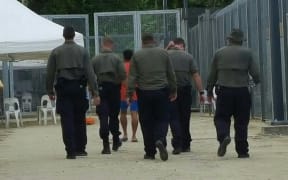First Person - The Good Friday attack on the detention centre on Papua New Guinea's Manus Island put the Australians who work there in the same dangerous position as the refugees, writes Kurdish journalist and detainee Behrouz Boochani.
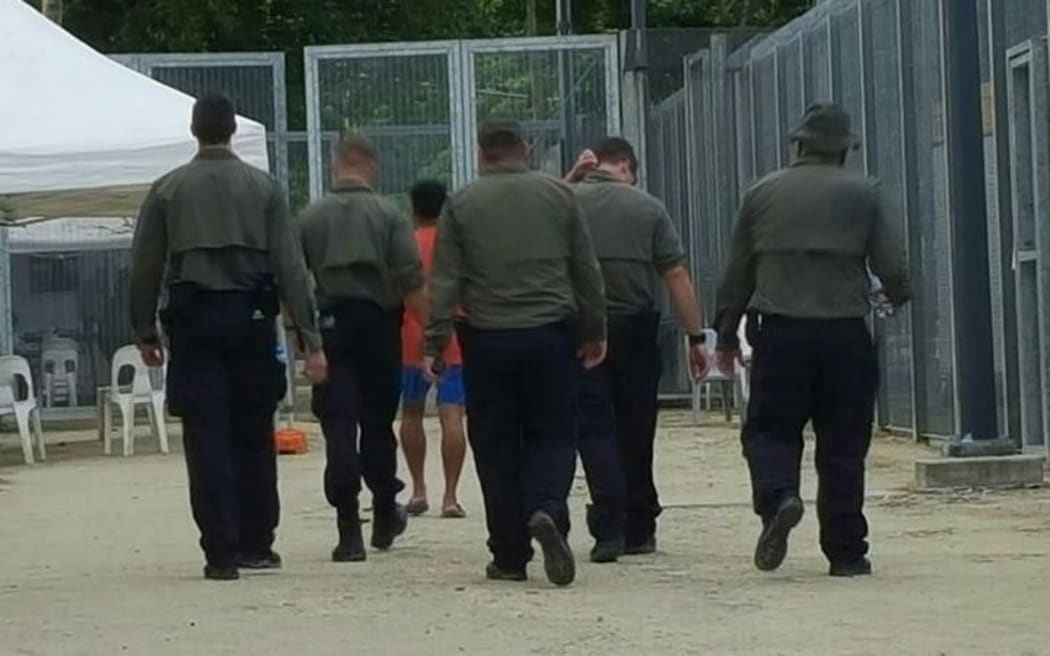
A file photo shows detention centre guards on Manus Island, where about 900 men have been held for almost four years. Photo: Behrouz Boochani
Last Friday, according to PNG police, up to 15 naval officers went on a drunken rampage through the centre and fired about 75 shots, following a fight with a group of detainees.
During the attack, the workers, who have held about 900 men at the centre for almost four years, seemed to disappear.
What happened to the Australians?
An important element of the night of 14 April was that guards, employed by Wilson Security, and staff, working for the government and other companies providing services at the centre, were, for the first time, in the same situation as the refugees.
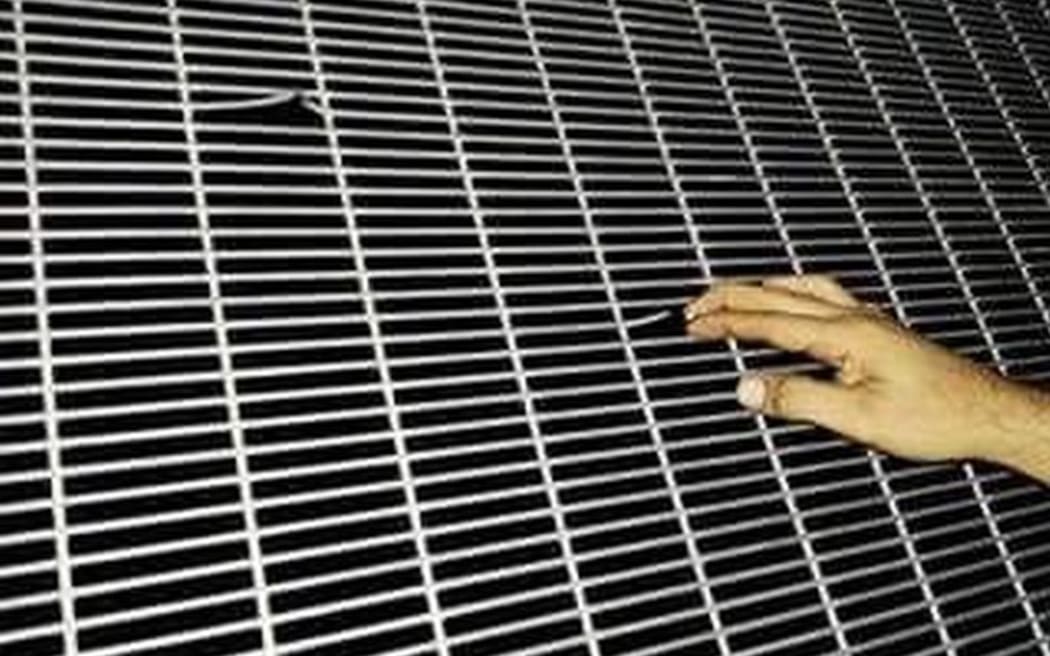
Bullet holes in a fence at the Manus Island detention centre Photo: Refugee Action Coalition
During the attack, scared guards and staff were seen running away from their accommodation by refugees coming back from Lorengau town on a bus.
The refugees watched them running towards an Australian ship moored nearby, before the bus turned back to Lorengau.
Some staff who could not run away were sheltering in their rooms and some of them were hiding under their beds. An Australian woman told me, "I have never experienced violence like that. It was the first time in my life I heard gunshots."
Another Australian woman was stuck in the immigration office as soldiers tried to break the window. Elsewhere, the windows of the staff office and control room were broken.
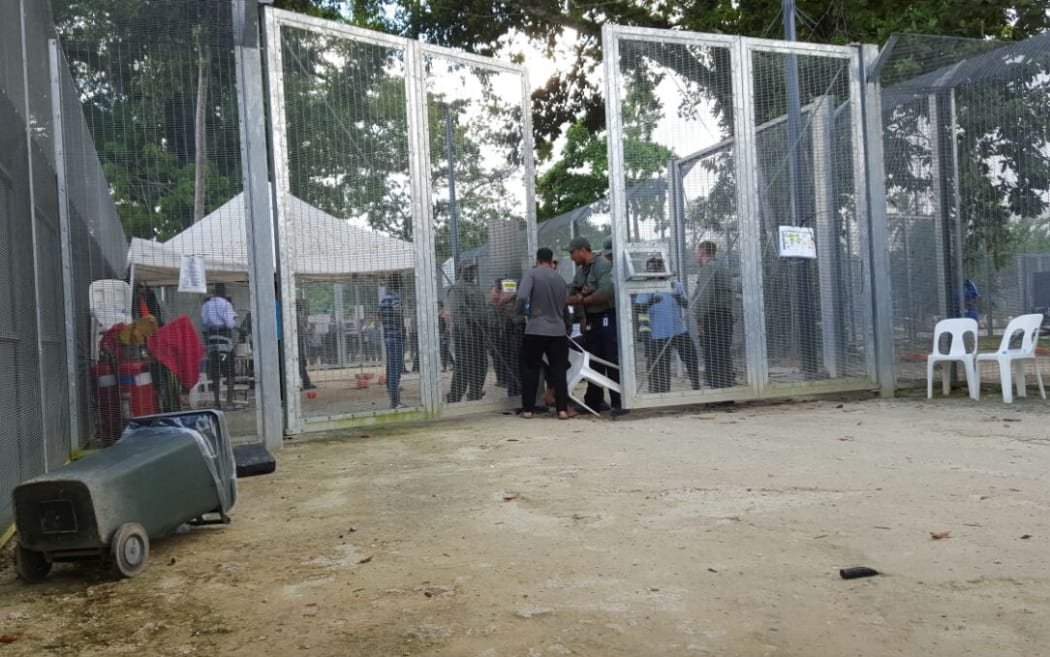
A dispute between refugees and guards at the gate to Oscar compound, one of several where detainees are housed. Photo: Behrouz Boochani
On one side of the centre about 20 refugees and three guards were hiding in detainee rooms. The refugees told me that the guards were very scared.
At the gate to Oscar compound two guards tried to prevent the soldiers from getting into the prison. The guards were beaten extremely badly. Different guards told me that the soldiers pointed guns directly at them before firing shots into the air.
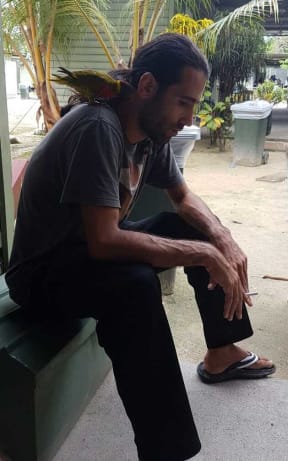
Behrouz Boochani - in the centre Photo: Behrouz Boochani
Two female staff were walking on a road near the jungle when the shooting started. They ran to a group of houses where a local man took them in. Some Australian citizens were hiding in the jungle for hours.
At the same time, other staff were sheltering in an office between Oscar and Foxtrot compounds near the officers' mess. They had turned off the light, but when the soldiers started shooting towards the building, a PNG immigration officer suggested they stand up and raise their hands. He said if they did that the soldiers would not hurt them. They stood up for a few minutes but nobody came in the room.
Staff were also hiding in rooms between Delta and Foxtrot compounds. In Foxtrot, about 20 guards sheltered with refugees behind their rooms.
The Australian personnel who shared these stories with me were seriously traumatised. I know some of them have already left Manus Island and others plan to leave. Some of them said they would complain to their employer, Broadspectrum, for putting them in a situation where they were attacked by gunshots. I know that this company has received a lot of reports from staff documenting the different stories and that it is investigating.
The Good Friday incident proves the Australian government and the companies working here cannot ensure safety for refugees or Australian citizens.
I think that for the first time the people working here could understand what it has been like for the refugees, living in fear for four years.


